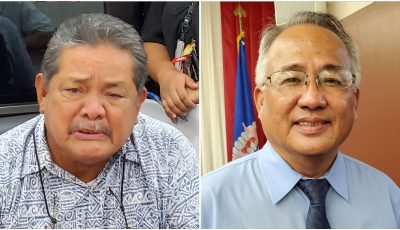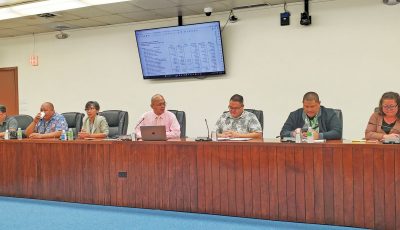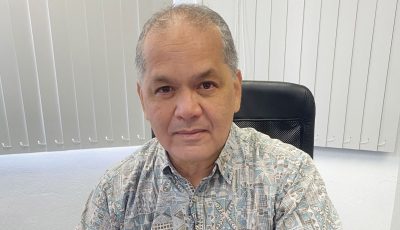ENVIRONMENTAL GROUPS SAY:
‘CJMT program won’t address military’s training deficiencies’
The proposed CNMI Joint Military Training program is not designed to address the U.S. military’s training deficiencies throughout the Western Pacific generally, as the U.S. Navy and the U.S. Department of Defense suggest, according to four environmental groups.
Rather, the environmental groups’ counsel David L. Henkin of Earthjustice said, the proposed CJMT focuses on training deficiencies “specifically in the Mariana Islands.”
In the groups’ opposition to the Navy’s and Defense’s motion for summary judgment, Henkin said the Navy identified those deficiencies in its 2013 training needs assessment, which evaluated “unfilled training requirements for units/commands in the U.S. Pacific Command Area of Responsibility” and concluded that “the greatest number of training deficiencies existed in the Mariana Islands.”
The groups—Tinian Women Association, Guardians of Gani, Pagan Watch, and the Center for Biological Diversity—are suing the Navy and Defense and their secretaries for alleged violation of National Environmental Policy Act and Administrative Procedure Act over their decision to relocate 5,000 U.S. Marines from Okinawa to Guam and to conduct live-training on Tinian and Pagan.
In the groups’ opposition to defendants’ motion for summary judgment, Henkin said without thousands of Marines stationed in Guam, there would be no reason to conduct the lion’s share of the training proposed in the CJMT program.
He said while the Navy and Defense assert that, “the proposed CJMT program…has ‘independent utility,’” they fail to back up with evidence from the record their claim the program would proceed “even were Marine forces to stay in Okinawa.”
Henkin said even if the full scope of training in the CNMI required for Guam-based Marines to carry out their mission were not “connected” with the Guam relocation, the Navy would still be obliged to take a hard look in its relocation environmental impact statement and supplemental environmental impact statement at the cumulative impacts of that training.
He said the Navy failed to do so, providing only cursory and conclusory statements about Marine Corps training on Tinian that the Navy itself identified as cumulative projects and ignoring completely cumulative impacts on imperiled Mariana fruit bats of future Marine Corps training on Tinian and Pagan.
Henkin said the Navy identified cumulative Marine Corps training projects on Tinian, but failed to take NEPA requisite hard look at their cumulative impacts.
Henkin said while the Navy and Defense claim that constructing and operating training ranges in the CNMI that are essential for Guam-based Marines to carry out their mission “are separate and distinct from the ongoing proposed relocation of Marine Corps forces from Okinawa to Guam” and “have independent utility,” saying it does not make it so.
“It was never the Navy’s plan to move thousands of Marines to Guam, provide them with only individual-skills training in Guam and Tinian, and call it a day,” he pointed out.
Henkin said the mere fact that various executive agreements between the U.S. and Japan call for the relocation of Marines from Okinawa does not affect the court’s analysis of whether the Guam relocation decision and required Marine Corps training are connected actions.
According to the U.S. Department of Justice, the proposed CJMT program addresses theater-wide training needs in the Western Pacific and serves joint and allied training needs that extend beyond the requirements of the Guam-based Marines.
DOJ Environmental & Natural Resources Division trial attorney Joshua P. Wilson said the CJMT program holds independent significance, and is designed to accomplish a range of objectives that are separate from, but complement, the relocation of Marines from Okinawa to Guam.
Wilson discussed the CJMT program as counsel for the Navy and Defense and their secretaries, who filed memorandum in opposition to the groups’ motion for summary judgment.



























